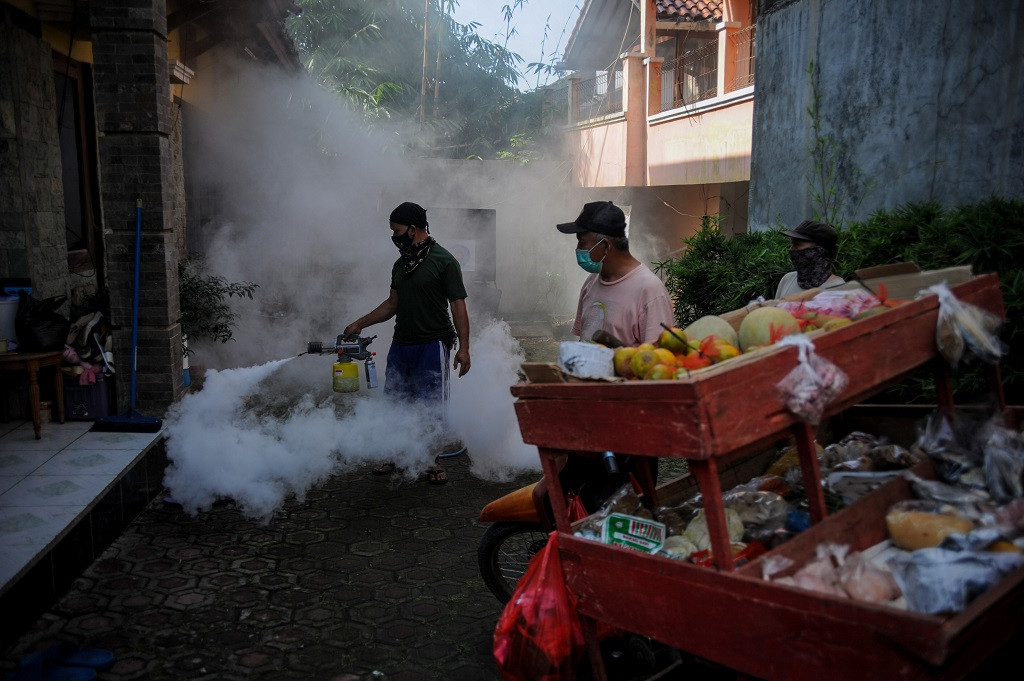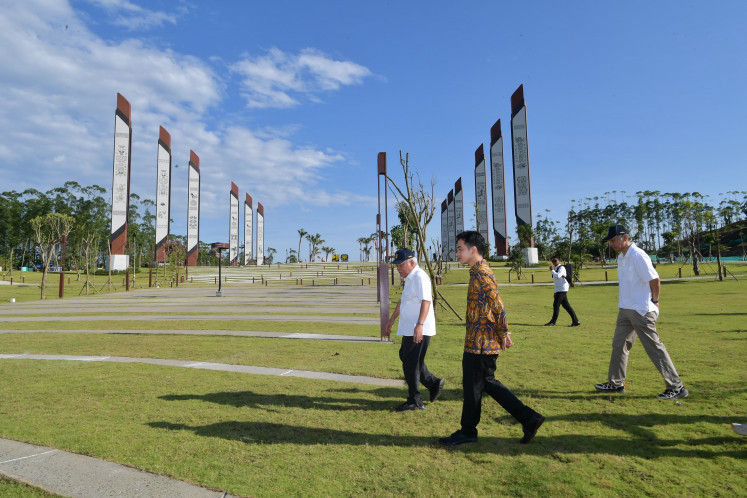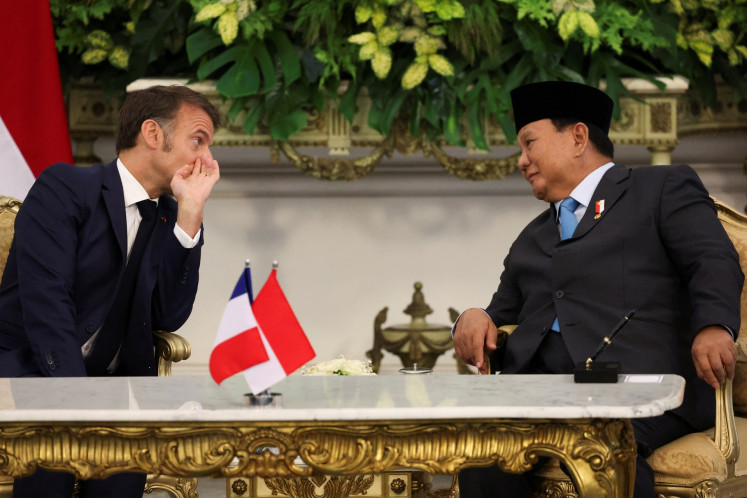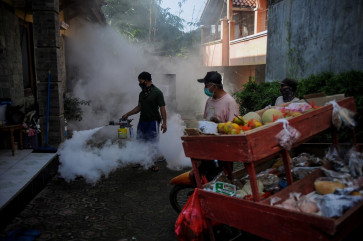Govt insists on releasing Wolbachia mosquitoes in dengue fight despite Bali protests
Change text size
Gift Premium Articles
to Anyone
 A healthcare worker sprays insecticide in a residential area at Cinunuk village, Bandung regency, West Java on June 5, 2021 as part of efforts to prevent dengue fever. (Antara/Raisan Al Farisi)
A healthcare worker sprays insecticide in a residential area at Cinunuk village, Bandung regency, West Java on June 5, 2021 as part of efforts to prevent dengue fever. (Antara/Raisan Al Farisi)
T
he Health Ministry is planning to continue releasing lab-bred mosquitoes containing the Wolbachia bacteria to curb the spread of dengue fever in the country, despite opposition from Bali residents.
Bali authorities recently postponed the release of some 200 million eggs of Wolbachia-infected mosquitoes in the province following protests from residents.
The locals were concerned about the long-term impacts of the project, which is a joint effort between the Bali administration and the nonprofit World Mosquito Program (WMP), on public health. They fear that the modified mosquitoes will transmit Wolbachia bacteria to humans.
Concerns have also arisen that the release of the modified mosquitoes will significantly increase the mosquito population in the popular tourist destination, eventually leading to the spread of other mosquito-borne diseases, such as Zika, Chikungunya and Japanese encephalitis.
Residents fear that the rapid increase of mosquitoes will affect tourism activities in the resort island.
Despite the opposition in Bali, Health Ministry spokesperson Siti Nadia Tarmizi said the government was considering continuing its own program, which uses Wolbachia-carrying mosquitoes to fight dengue in other regions.
"This year we have started releasing modified mosquitoes in three cities, namely Semarang in Central Java, Bontang in East Kalimantan, and Kupang in East Nusa Tenggara,” Nadia told The Jakarta Post recently.


















